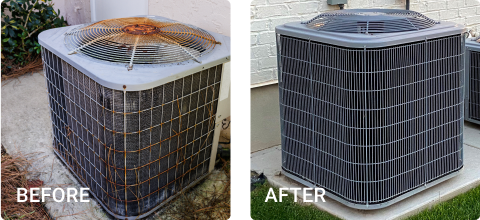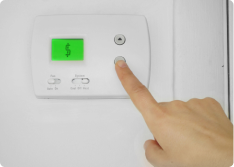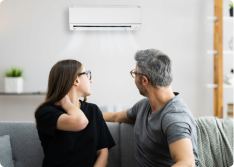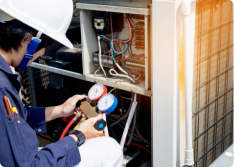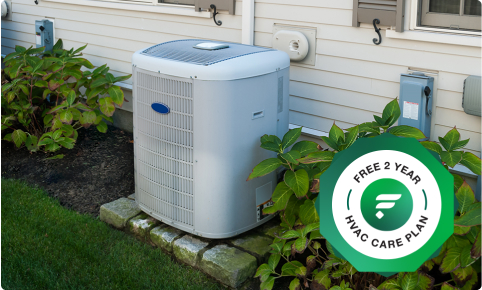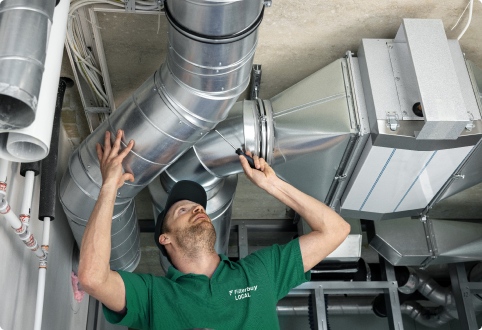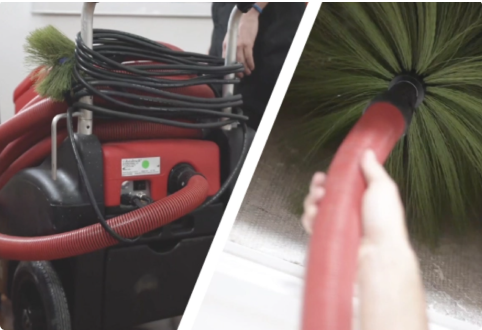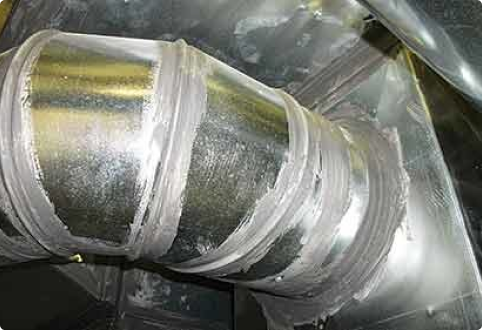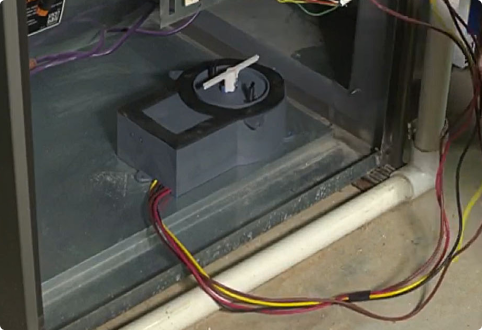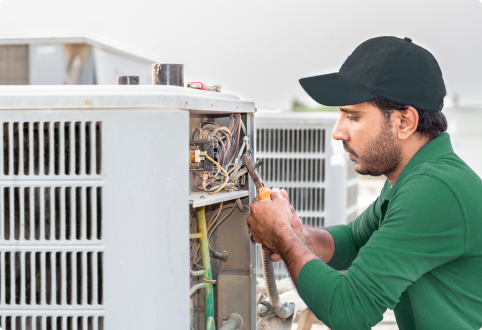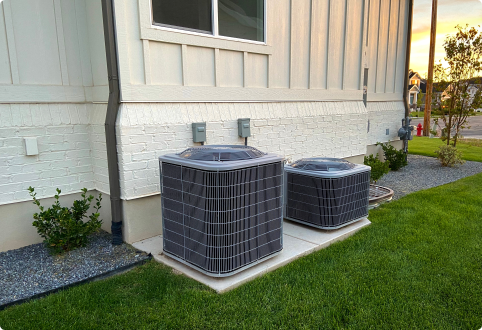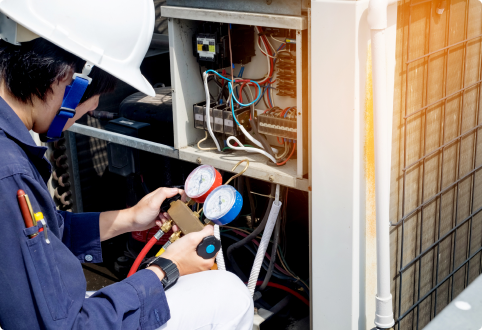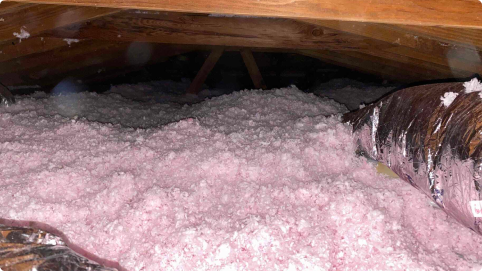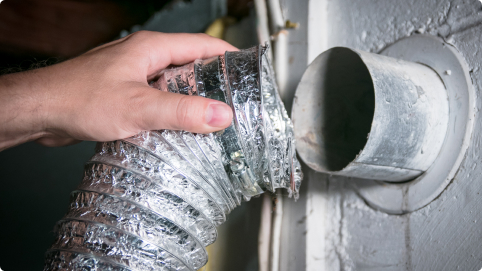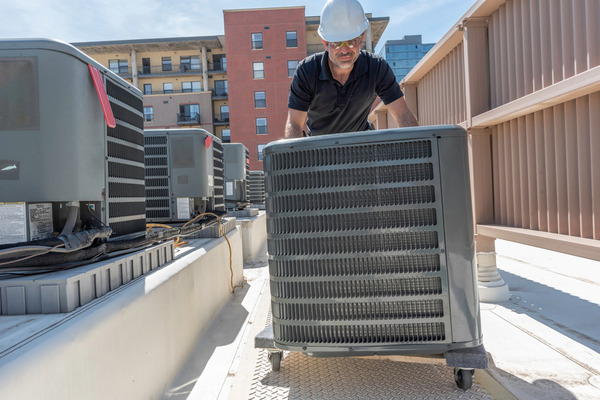Welcome to Filterbuy HVAC Solutions, the best HVAC system installation service company proudly serving in and near the greater Port St. Lucie, FL area. Please let us know how we can help solve your Port St. Lucie HVAC system installation needs with professional, affordable, and fast residential and commercial HVAC services by getting a free online quote or by giving our friendly HVAC specialists a call. We look forward to hearing from you!
Port St Lucie's Top HVAC Installation Choice
Keeping our homes comfortable in Port St. Lucie FL hinges on selecting the right HVAC installation. Filterbuy HVAC shines with its energy-efficient solutions and customer-focused service. Offering flexible financing options and an array of equipment to suit different budgets, they go beyond expectations.
Did you know their complimentary UV light installations and free air filters can significantly improve air quality and extend system longevity? Let's uncover why Filterbuy could be your top choice for HVAC needs.
Key Takeaways
■ Filterbuy HVAC customizes solutions for Port St Lucie's climate.
■ Years of experience ensure efficient, energy-saving systems and satisfaction for customers.
■ Premium Care Plan includes complimentary services, air filters at no cost, and UV light installation.
■ Financing options offer interest-free plans and manageable monthly payments.
■ Regular maintenance and proactive measures improve system longevity and air quality.
Common HVAC Issues
Common issues with HVAC systems can quickly disrupt your comfort and efficiency at home. Thermostat malfunction can cause inconsistent temperatures. This makes your living space less comfortable. Also, neglected air ducts can seriously impact air quality. Dust, mold, and other contaminants will build up. These pollutants circulate throughout your home, posing health risks, especially for those with allergies or respiratory conditions.
Regular maintenance remains vital. Clogged drain lines, for example, can lead to water damage and mold growth. Addressing issues proactively guarantees HVAC systems run efficiently. Safeguarding health and comfort. Proper care of HVAC systems ensures a safe and comfortable living environment.
Choosing Filterbuy HVAC
Choosing Filterbuy HVAC for your installation and service needs in Port St. Lucie means partnering with a company that deeply understands the unique climate challenges of the area. With extensive experience, we’re committed to energy efficiency and ensuring your complete satisfaction. Our team excels at creating tailored solutions for your home. Whether aiming to reduce energy bills or ensuring your system operates smoothly throughout the year. Our commitment to long-term service prioritizes your comfort and happiness. Offering a range of equipment options from premium to budget-friendly, we ensure top performance for your investment. Experience unparalleled expertise and care by choosing Filterbuy HVAC.
Benefits of Premium Care Plan
Choosing our Premium Care Plan offers numerous advantages that keep your HVAC system in top shape. Customer satisfaction remains a priority by providing two years of complimentary service with every HVAC replacement, ensuring smooth operation. Free air filters are included to maintain optimal air quality, reducing allergens and pollutants. The plan features annual condenser coil cleaning, enhancing system efficiency and durability.
We also offer complimentary replacement parts such as surge protectors and drain guards, safeguarding your investment. UV light installation, valued at $499, is provided at no additional cost, purifying the air and reducing health risks associated with poor air quality. These comprehensive benefits ensure your home stays comfortable and safe throughout the year.
Flexible Financing Options
Filterbuy HVAC Solutions is aware that investing in a new HVAC system is a big decision. We provide customizable financing alternatives that are suited to your budget to lessen the financial load. All residents of Port St. Lucie can live comfortably in a home without going over budget thanks to affordable alternatives.
The payment plans accommodate various financial situations, providing interest-free options for new installations and allowing the cost to be spread over manageable monthly payments. Choosing Filterbuy means investing in top-quality equipment while gaining peace of mind knowing your financial needs are covered. Let's make your home comfortable together.
When to Replace Your HVAC
Recognizing when to replace an HVAC system is important for both comfort and financial stability. Evaluating the lifespan and efficiency of the system is necessary. Rising energy bills, even with regular upkeep, might signal the need for a new unit. Indicators include warm or humid air, strange noises, or frequent breakdowns.
Generally, HVAC systems last 10-15 years, but declining performance can prompt earlier replacement. Ignoring these signs risks reduced air quality and potential health issues. Inefficient units struggle to maintain comfort, increasing costs and posing threats. Ensuring our homes remain safe and efficient requires awareness of replacement timing, and prioritizing health and finances.
Why Filterbuy HVAC Solutions?
1. Price Matching Guarantee
We promise to give you the lowest price without making the product worse because we know that’s important in Florida where the cost of living is so high!
2. Expert Technicians
We know how important it is that you get quality work because HVAC systems are expensive to repair and replace. You can count on our technicians to meet the utmost stringent certification standards as well as undergo the necessary training it takes to keep updated with the latest industry standards. Trust our team with your home and your new shiny HVAC system!
Our technicians complete a comprehensive training program that covers HVAC fundamentals, advanced troubleshooting, and modern installation practices. This ensures they are equipped to handle even the most complex installations.
3. Green Carpet Treatment
Experience our Green Carpet Treatment, we believe in fair pricing. The quote you get is the price you pay. We're honest about our prices, so you can trust us.
4. High-Quality Products
Filterbuy makes strong HVAC products that can handle Florida’s hot and sticky weather.
Choosing Filterbuy means investing in durability and a reputable brand. Our products are made with the best stuff so they last a long time and work really well.
We use the highest quality parts to build our AC units. This means fewer breakdowns and cleaner air for your home. People trust us to make great HVAC products.
5. Competitive Pricing
Filterbuy offers you the best price without getting a worse product.
We buy things in big batches to save money, and we pass those savings on to you. Whether upgrading your existing setup or installing a new one, Filterbuy’s competitive pricing ensures you get the best deal.
6. 0% Financing, $0 Down
New installs qualify for excellent financing terms, including 0% financing with $0 down. Ask us for details on how we can make your new HVAC system more affordable.
7. 2 Years of Free Maintenance
Every HVAC system needs regular maintenance for optimal performance. With Filterbuy, your new system comes with 2 years of free maintenance. We’ll ensure it runs smoothly and efficiently, so you can enjoy peace of mind.
8. 1-Year Extension to Labor Warranty
For new installations services in Port St. Lucie FL, we extend our general 1-year labor warranty to an extra year, giving you 2 years of coverage. This additional protection provides extra peace of mind, just in case.
9. 24-Hour Support
We are here for you 24/7. We're here to help you with your AC, anytime, day or night for any HVAC emergencies or questions, ensuring your comfort is never compromised.
10. Exceptional Customer Service
We care about you and want to help. Tell us what you need, and we'll find the best stuff for you. We're always trying to get better.
11. Energy Efficiency Solutions
Using less energy makes your HVAC work better and saves you money. Filterbuy wants to give you the best and most energy-saving air conditioners in Florida.
We'll find out what's wrong with your AC and how to fix it.
Our special filters make your AC work better and save energy. This saves you money and makes your HVAC unit last longer.
Frequently Asked Questions
What Does a New HVAC System Cost in Florida?
An HVAC system in Port St. Lucie, Florida costs $4,000 to $12,000, depending on how big your house is and the kind of air conditioner. The cost includes installation fees. It might cost more if the ducts need repairs or changes.
Why Does HVAC Installation Cost So Much?
Putting in an AC is a difficult job. It needs special skills and tools. This job is dangerous if done wrong. The cost includes a warranty and maintenance which can make it more expensive. This makes sure your AC works well.
Do You Need a Permit to Replace the AC Unit in Florida?
Yes, you need a permit to replace the AC in Florida. This makes sure that the installation meets the local building codes and is safe. It's also important for insurance purposes.
What Is the Best Type of AC Unit for Florida?
The best kind of air conditioner for Florida is a central air conditioner with a heat pump. This is ideal for Florida’s hot weather. It provides efficient cooling during the long, steamy summers. It can also handle the mild winters. Heat pumps work well in this area. They are energy-efficient. They make your house cooler in the summer and warmer in the winter.
How Much HVAC for 1500 Sq. Ft?
For a 1,500 square foot home, you'll generally need an HVAC system with a cooling capacity of about 2.5 to 3 tons, depending on factors like your climate, insulation, and home layout. The cost is around $3,500 to $5,000. It's best to consult with an HVAC professional to ensure accurate sizing based on your specific home's needs.
What Time of Year Is Cheapest to Replace HVAC?
The cheapest time of year to replace your HVAC system is the start of spring or fall. The weather is more moderate. People aren't using their heating or cooling systems as much during these times. HVAC companies offer promotions during these periods. You can save money if you plan ahead. Replace your air conditioner when it’s not so busy.
Are HVAC Prices Going Down in 2024?
HVAC prices are not expected to decrease. Several factors like inflation, cost of materials, and supply chain issues since the pandemic contribute to the current pricing trends. New technology for air conditioners and units that use less electricity are in high demand. This makes them more expensive.
What Is the Most Expensive Part of an HVAC System?
The most expensive part of an AC is the compressor. It's like the heart of the machine. The compressor moves the refrigerant around the system. Which is important for cooling your home. The compressor is hard and expensive to fix. Often running into thousands of dollars especially when you factor in labor costs.
Can a Homeowner Pull an HVAC Permit in Florida?
Yes, a homeowner in Florida can pull an HVAC permit. You can pull the permit yourself and even do the work. You can install an AC as long as you own the house and live there. Make sure to follow all the local rules about building. The local building department will need to check the work to make sure it’s done right.
It’s best to hire a professional if you’re not sure how to put an air conditioner yourself. Filterbuy HVAC solutions trained technicians will skillfully fix your HVAC to ensure that your system runs as efficiently.
What Can a Homeowner Do Without a Permit in Florida?
A homeowner in Port St. Lucie, Florida can do minor repairs without a permit. Jobs like painting, tiling, and installing cabinets. A permit is required for major works like plumbing, electrical, or structural changes.
What Happens if You Don't Pull a Permit in Florida?
You might be fined by your local building department. This can be costly. It can also create issues with your homeowner’s insurance. Unpermitted work will not be covered in the event of damage or a claim. Not pulling a permit can lead to legal, financial, and safety risks. These can be avoided by following the proper permitting process from the start.
What SEER Rating Is Best for Florida?
A SEER rating of 14-16 is typically suitable for Port St. Lucie, Florida. Higher SEER ratings offer greater energy efficiency which can lower your energy bills, especially in the hot Florida climate.
Can I install my own AC unit in Florida?
You need a permit to install an AC unit in Florida. It could get you in trouble and cost you more money if you don’t comply. Hire someone who knows what they're doing to avoid future problems.
Filterbuy HVAC solutions trained technicians will skillfully install your AC to ensure that your system runs as efficiently.
How much does an HVAC system cost in Florida?
HVAC system costs in Florida vary depending on the size of your home. The type and difficulty of installation will also affect the cost. Expect to pay between $4,000 and $10,000 for a complete HVAC system. Buying an air conditioner that uses less electricity can cost more, but it can save you money in the long run.
What is the most common HVAC system in Florida?
A central air conditioning system combined with a heat pump is the most common HVAC system in Florida. It efficiently cools homes during the long and hot summers and it provides heating during the cooler months. Heat pumps are suited to Florida’s weather. They are energy-efficient and work well in moderate temperatures.
Ductless mini-split systems are also becoming more common. Especially in homes without existing ductwork. Homeowners can control the temperature in specific rooms.
Here is the nearest branch location serving the Port St. Lucie area…
Filterbuy HVAC Solutions - West Palm Beach FL
1655 Palm Beach Lakes Blvd ste 1005, West Palm Beach, FL 33401
(561) 448-3760
https://maps.app.goo.gl/RBfjJ4u9fg8d7mes6

.webp)
.webp)
.webp)
.webp)






